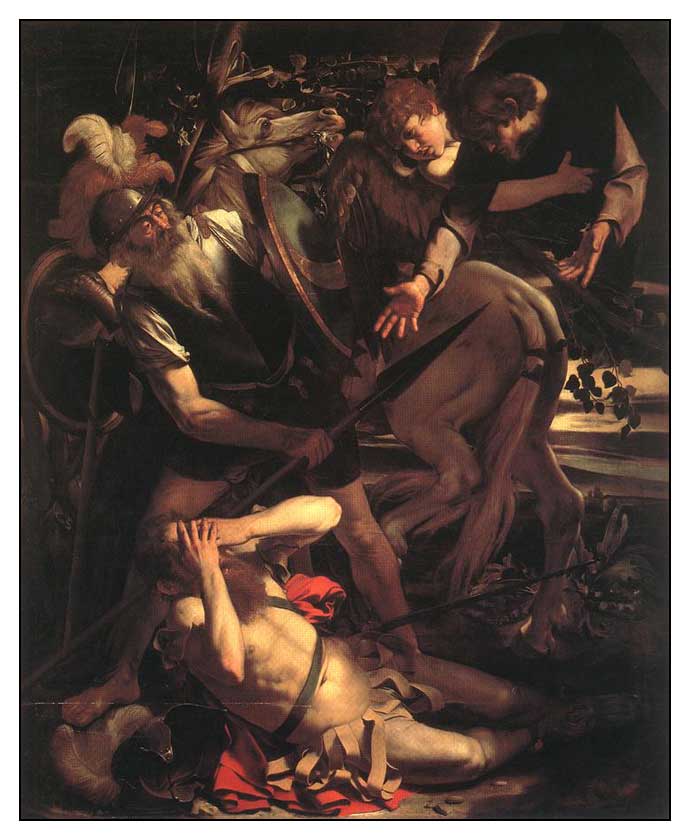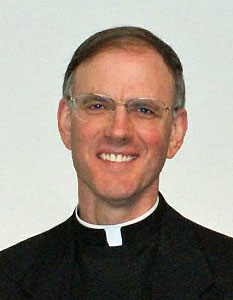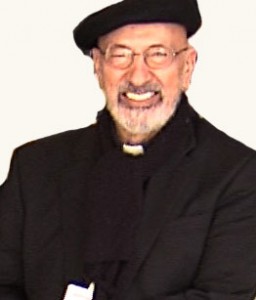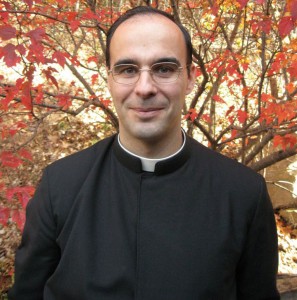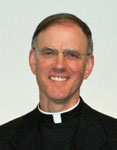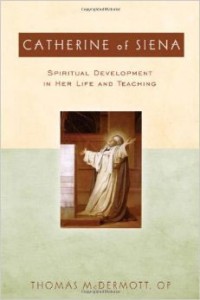Episode 10-Â The Church: Â Reflecting the Light of Christ
[powerpress]
Archbishop Lucas offers insights on the US Catholic Catechism for Adults Chapter 10:
The Church is the continuing manifestation of the Father, Son, and Holy Spirit. Â The Church exists by the will of God the Father and his plan to gather all people under the Lordship of his Son. Â As Head of the Church, Jesus Christ continues to fill her with his life and saving grace, pouring into her the Holy Spirit with his gifts of unity, peace, and love.
The Most Reverend George J. Lucas leads the Archdiocese of Omaha.Â
For other episodes in the visit our Archbishop George Lucas page
This programs is based on:
More information can be found here.
We wish to thank the USCCB for the permissions granted for use of  relevant material used in this series.
Also we wish to thank Omar Gutierrez and Teresa Monaghen  for their vocal talents in this episode.
Tags: Catholic Catechism, George Lucas, light of christ
This entry was posted on Wednesday, February 19th, 2014 at 1:55 pm
You can follow any responses to this entry through the RSS 2.0 feed.
Is Jesus Calling? A Spiritual Guide to Discerning Your Vocational Call with Fr. Paul Hoesing – episode 4:Â 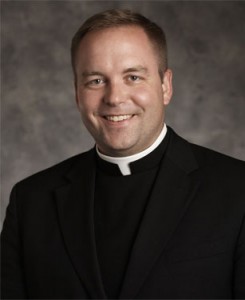
The Fourth Spiritual Lesson: It Takes Time. “The Father simply wants you to trust him enough to take the next step, not the 10th or 20th step. He wants you to focus on going from A to B, not on going from A to Z. When you take that step, Jesus will reveal the next one.”
Questions: What is the next step God is asking of you? Are you afraid to take it? If you are, ask him into the situation or reality that causes you fear. Are you focusing too far down the road?
[powerpress]
The Fifth Spiritual Lesson: Your Peace is Found in Jesus. “Christ’s presence is enjoyable; it gives us peace, stillness, clarity and gratitude. Our job is to desire it.”
Questions: Where do you experience peace, stillness, clarity or gratitude in God? Wherever that is happening in your life, you need to do two things: (1) realize that this is the presence of Christ and ; (2) desire it throughout your day…above all thins. Relish his presence, enjoy his presence, long fro his presence, keep coming back to his presence, adore his presence and express gratitude for his presence.
Based on “Is Jesus Calling You To Be A Catholic Priest: A helpful guide”, published by National Conference of Diocesan Vocation Director.
Fr. Paul Hoesing serves as the Vocation Director for the Archdiocese of Omaha, NE.
Check out “For Your Vocation.org“
Tags: Paul Hoesing, Spiritual Lesson
This entry was posted on Wednesday, February 19th, 2014 at 1:37 pm
You can follow any responses to this entry through the RSS 2.0 feed.
From Omar F. A. Gutierrez (found on his blog)
I cannot tell you how many times I have heard this complaint from well-meaning Catholics: “We have a 40 Days for Life and a March for Life and a Novena for Life, but why don’t the bishops get behind a 40 Days for Poverty or a March to End Poverty campaign? Why can’t the bishops give equal time to all the other life issues?†Here’s what I usually say:
1) I think it is important to agree that poverty is a life issue. Likewise, it is important to agree that addressing poverty and its many causes is part of our responsibility as Catholics. So saying things like, “Helping the poor is the business of local churches and charities and is not the work of the government†is nonsense and actually counters Catholic Social Teaching. The government does and must have a role if for no other reason than to reinforce the notion that alleviating the affects of poverty is a communal responsibility. The level of governmental involvement is debatable, but that it should be involved really isn’t.
2) But then it needs to be pointed out to the well-meaning Catholic that there is no single legislative embodiment of the perpetuation of poverty. There is no one law that exists in our land which states, “poverty is a good thing,†or “we want poor people,†or “being poor is a Constitutional necessity.†There is, however, a singular decision that has enshrined abortion on demand, a singular legal decision which has created a structure around abortion that is one of the most permissive in the entire world, a singular argument that is so legally unsound that even supporters of abortion think it is bad law. That law is Roe v. Wade, and it needs to be overturned.
Saying that poverty needs to be overturned might be a nice sound bite, but it is meaningless. There is no single legal strategy that will ever eradicate poverty, indeed, Our Lord tells us that poverty will always exist. I know many who cringe at the mention of this fact, but it is a fact, and it means only what it means. We will always have the poor with us.
3)  To this many respond, “Well, we’ll always have abortion too.†Yes, that’s right, which is why the strategic goal of the U.S. Bishops is not to thwart abortions for all time. Thanks to sin, abortion will always be with us. Therefore, our goal is not to undue sin but rather to overturn legalized abortion. The goal is always to finally put an end to the legal structure that allows one class of persons to snuff out the life of another class of persons. Put otherwise, our goal is to make abortion illegal not impossible. There is no way to make it impossible, and making poverty illegal is nonsensical.
4)  There is another crucial difference. We have all this public pro-life work because there are still so many Americans and even many Catholics who are convinced that abortion is okay. Though there are some who callously dismiss the plight of the poor as a punishment for their own laziness, it is nevertheless the case that expressing this opinion is roundly condemned by our culture. Everyone knows, even if they dare to think it, that blaming the poor for their poverty is asinine. It’s considered “edgy†to say so when it is said. And no one runs on a platform that says, “let the poor stay poor.†Democrats accuse Republicans of just that, but they have to infer that’s the case because no one would dare say it publicly. That’s the difference.
When was the last time you saw reps for “Catholics for Poverty†on TV?
We do have Catholics, on the other hand, who think that abortion is alright. There are even Catholic University professors who teach that abortion can be a moral act. Heck, we have an entire political party dedicated not just to keeping abortion legal but to making sure it’s free for whoever wants one, along with Catholics who vote for candidates who publicly say “abortion is a Constitutional right†and “I don’t want my daughters punished with a child.â€
5) Also, by defending the rights of the unborn, the bishops actually are advocating for the poor. The effort to help the poor will always fail so long as Americans continue to think that the life of the unborn child is expendable. The popes have said repeatedly, in all sorts of different ways, that a legal structure and a culture that rejects the life of the unborn innocent cannot hope to achieve a social justice that will honestly address the needs of the poor. The rights to labor, a just wage, education, health care, family and the rest are all “false and illusory,†to quote John Paul the Great, if the right to life is not defended to the maximum.
6) The truth is that the bishops’ do advocate for the poor, here and abroad. On state levels and at the national, they do advocate for those policy decisions that help the poor. Now, I don’t always agree with them on what helps the poor and what doesn’t, but they are far from silent about it. We could probably be reminded more often about our own responsibilities. No doubt there are a few prelates here or there who could take a cue from Pope Francis and give up the “trappings†of the ecclesial machine. Certainly, Catholics with means (even myself – as meager as my means are) could be more generous with our donations to fund poverty relief, especially those which address the root causes of poverty and build up family life.
But while all that may be true, abortion is singularly odious because of the laws that protect it and because of a culture that defends it. God bless all those who work for life . We need more of them, and we need more Catholics who love the poor to get behind the pro-life movement and to stop supporting candidates who perpetuate this genocide.
Omar F. A. Guiterrez, M.A. , Special Assistant  to Archbishop George Lucas of the Archdiocese of Omaha.  He’s also the author of “The Urging of Christ’s Love:  The Saints and The Social Teaching of the Catholic”
Tags: catholics
This entry was posted on Tuesday, February 18th, 2014 at 6:08 pm
You can follow any responses to this entry through the RSS 2.0 feed.
Let him who is in consolation think how he will be in the desolation which will come after, taking new strength for then.
[powerpress]
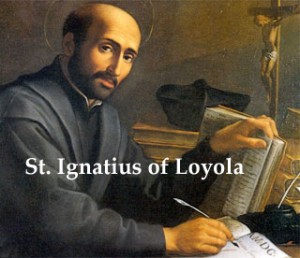 The Discernment of Spirits: Setting the Captives Free – Serves as an introduction to the Spiritual Exercises of St. Ignatius of Loyola
The Discernment of Spirits: Setting the Captives Free – Serves as an introduction to the Spiritual Exercises of St. Ignatius of Loyola
The 14 Rules for Discerning Spirits –
“The Different Movements Which Are Caused In The Soul”
as outlined by St. Ignatius of Loyola can be found here
Father Timothy M. Gallagher, O.M.V., was ordained in 1979 as a member of the Oblates of the Virgin Mary, a religious community dedicated to retreats and spiritual formation according to the Spiritual Exercises of St. Ignatius. Â Fr. Gallagher is featured on the EWTN series “Living the Discerning Life: Â The Spiritual Teachings of St. Ignatius of Loyola”.Â
For more information on how to obtain copies of Fr. Gallaghers’s various books and audio which are available for purchase, please visit  his  website: www.frtimothygallagher.org
 For the other episodes in this series visit
Fr. Timothy Gallagher’s “Discerning Hearts†page
Tags: discernment of spirits, Father Timothy M. Gallagher, Timothy Gallagher
This entry was posted on Tuesday, February 18th, 2014 at 6:49 am
You can follow any responses to this entry through the RSS 2.0 feed.
How are you tempted? Â What is your weakness? What is the remedy?
Reading 1 Â Â Â JAS 1:12-18
for when he has been proven he will receive the crown of life
that he promised to those who love him.
No one experiencing temptation should say,
“I am being tempted by Godâ€;
for God is not subject to temptation to evil,
and he himself tempts no one.
Rather, each person is tempted when lured and enticed by his desire.
Then desire conceives and brings forth sin,
and when sin reaches maturity it gives birth to death.Do not be deceived, my beloved brothers and sisters:
all good giving and every perfect gift is from above,
coming down from the Father of lights,
with whom there is no alteration or shadow caused by change.
He willed to give us birth by the word of truth
that we may be a kind of first fruits of his creatures
Lectionary for Mass for Use in the Dioceses of the United States, second typical edition, Copyright © 2001, 1998, 1997, 1986, 1970 Confraternity of Christian Doctrine;
Tags: catholic, catholic podcast, catholic prayer
This entry was posted on Tuesday, February 18th, 2014 at 6:37 am
You can follow any responses to this entry through the RSS 2.0 feed.
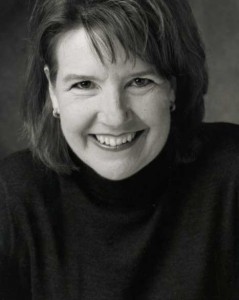 Episode 10- Seeking Truth with Sharon Doran -Announcement of the Kingdom Of God (PART 1) [powerpress]
Episode 10- Seeking Truth with Sharon Doran -Announcement of the Kingdom Of God (PART 1) [powerpress]
Episode 11 –
Announcement of the Kingdom Of God  (part 1)
“Repent, for the Kingdom of God is at hand.â€
With these words, Jesus proclaimed the coming of God’s Kingdom.
People have always clamored for a King and Israel had good and bad Kings throughout her history. But Jesus Christ is the true King, the eternal King, the KING of KINGS and Lord of Lords.
Through his bride the Church, his kingdom reigns on earth and in heaven.
As partakers of the sacraments, we return to the divine nature God initially intended.
Sharon Doran serves as the teaching director of “Seeking Truth.†An experienced Bible Study teacher, Sharon has a passion for scripture that will motivate and challenge you to immerse yourself in God’s Word and apply His message to your every day life.
 “Seeking Truth†is an in depth Catholic Bible Study, commissioned by the Archdiocese of Omaha in response to John Paul II’s call to the New Evangelization as well as Pope Benedict XVI’s exhortation for all Catholics to study scripture. To learn more go to:www.seekingtruth.net
“Seeking Truth†is an in depth Catholic Bible Study, commissioned by the Archdiocese of Omaha in response to John Paul II’s call to the New Evangelization as well as Pope Benedict XVI’s exhortation for all Catholics to study scripture. To learn more go to:www.seekingtruth.net
Tags: kingdom of god, Sharon Doran, the Kingdom Of God
This entry was posted on Tuesday, February 18th, 2014 at 4:49 am
You can follow any responses to this entry through the RSS 2.0 feed.
BTP#34 – “Hidden Mountain, Secret Garden” – The Mystery of Faith in the Wisdom of the Saints. Â In this episode Dr. Lilles discusses the writing of his book.
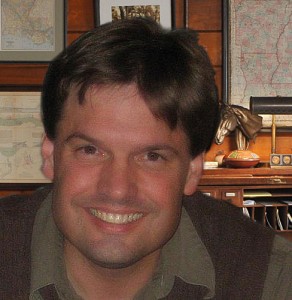
[powerpress]
 In this episode Dr. Lilles discusses the writing of his book, “Hidden Mountain, Secret Garden:  A Theological Contemplation of Prayer”.  What is a “mystic” and what is the particular calling of Carmelite spirituality is also addressed.  St. Therese, St. Teresa of Avila, St. John of the Cross, and Blessed Elizabeth of the Trinity are highlighted.
Dr.Anthony Lilles is a Catholic husband and father of three teaching Spiritual Theology at St. John Vianney Theological Seminary. He  teaches spiritual theology and spiritual direction to transitional deacons, and the spiritual classics to the men who enter the Spirituality Year, a year of prayer in preparation for seminary formation.  He is the author of the “Beginning to Pray”  Catholic blog spot.
For other episodes in the series visit the Discerning Hearts page for Dr. Anthony Lilles
Tags: Anthony Lilles, Lilles, Secret Garden
This entry was posted on Tuesday, February 18th, 2014 at 1:17 am
You can follow any responses to this entry through the RSS 2.0 feed.
FG#12 – The Way of Trust and Love Ep 1 – Fountains of Grace: reflections on contemporary spiritual classics with Donna Garrett
Join host Donna Garrett, with Fr. James Perez, LC, as they discuss the spiritual classic “The Way of Trust and Love:Â A Retreat Guided By St. Therese of Lisieux“Â by Fr. Â Jacques Philippe.
[powerpress]
Discussed in this episode, among other topics, Â from “The Way of Trust and Love” page 9
This is what Thérèse said:
You know, Mother, that I have always desired to be a saint, but alas, I have always realized, when I compared myself to the saints, that there is between them and me the same difference as exists between a mountain whose summit is lost in the skies, and the obscure grain of sand trodden underfoot by passers-by. Instead of getting discouraged, I said to myself: “God could not inspire us with desires that were unrealizable, so despite my littleness I can aspire to holiness. It is impossible for me to grow up, I must put up with myself as I am , with all my imperfections; but I want to find how to get to Heaven by a little way that is quite straight, quite short: a completely new little way. We are in an age of inventions; now one doesn’t have to make the effort to climb up a stairway in rich people’s houses, because an elevator does the work much better. I too would like to find an elevator to lift me up to Jesus, for I am too little to climb up the steep stairway of perfection.†Then I looked in the holy books for some sign of the elevator that I desired, and I read these words that had come forth from the mouth of Eternal Wisdom: “Whoever is VERY LITTLE let him come to me†[Proverbs 9: 4]. So I came, guessing that I had found what I sought. Wishing to know, O my God, what you would do for a little child who answered your call, I continued my search and this is what I found: “As a mother caresses her baby, so I will comfort you; I will carry you at my breast and rock you in my lap†[Isaiah 66: 13, 12]. Ah! never had such tender, melodious words come to rejoice my soul; the elevator that would lift me up to Heaven is your arms, O Jesus! To reach perfection, I do not need to grow up. On the contrary, I need to stay little, to become more and more little. O my God, you have surpassed my expectations, and I wish to sing of your mercies.For other episodes in the this series click here “Fountains of Grace w/Donna Garrett“
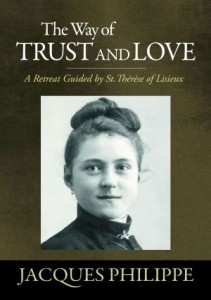
You can find “The Way of Trust and Love” here
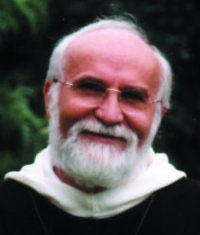
Fr. Jacques Philippe
Tags: catholic, catholic podcast, catholic prayer
This entry was posted on Tuesday, February 18th, 2014 at 12:59 am
You can follow any responses to this entry through the RSS 2.0 feed.
Episode 3 -The Way of Mystery: The Eucharist and Moral Living 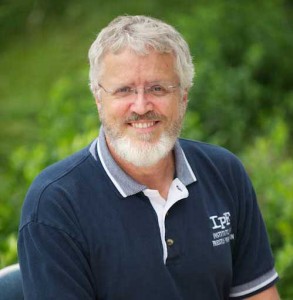
The Paschal Mystery and the importance of the Mass in our life of prayer
[powerpress]
For more episodes in “The Way of Mystery” Series click here
Deacon James Keating, PhD, the director of Theological Formation for the Institute for Priestly Formation, located at Creighton University, in Omaha, is making available to â€Discerning Hearts†and all who listen, his series of programs entitled “The Way of Mysteryâ€.
 The Vatican II documents remind us that the spiritual journey is not made in a vacuum, that God has chosen to save us, not individually, but as The People of God. The Eucharist must help Christians to make their choices by discerning out of Christ’s paschal mystery. For this process to take place, however, Christians must first understand how the Eucharist puts them in touch with Christ’s passion, death, and resurrection, and what concrete implications being in touch with this mystery has for their daily lives.
The Vatican II documents remind us that the spiritual journey is not made in a vacuum, that God has chosen to save us, not individually, but as The People of God. The Eucharist must help Christians to make their choices by discerning out of Christ’s paschal mystery. For this process to take place, however, Christians must first understand how the Eucharist puts them in touch with Christ’s passion, death, and resurrection, and what concrete implications being in touch with this mystery has for their daily lives.
For more information on the “Institute of Priestly Formation†and for other material available by Deacon Keating, just click here
Don’t forget to pickup a copy of “Communion with Christ†, it is one of the best audio sets on prayer…ever!
Check out Deacon Keating’s “Discerning Heart†page
Tags: institute for priestly formation, james keating, paschal mystery, theological formation
This entry was posted on Wednesday, February 12th, 2014 at 2:01 pm
You can follow any responses to this entry through the RSS 2.0 feed.
USCCA9- Episode 9-Â Receive the Holy Spirit
[powerpress]
Archbishop Lucas offers insights on the US Catholic Catechism for Adults Chapter 9:
The Holy Spirit is dynamic, transforming our bodies into temples of God and  our souls into dwelling places for Christ.  Sometimes called the Paraclete, a term that describes him as adovcate and consoler, the Holy Spirit wants to fill us with inspiration and encouragement
The Most Reverend George J. Lucas leads the Archdiocese of Omaha.Â
For other episodes in the visit our Archbishop George Lucas page
This programs is based on:
More information can be found here.
We wish to thank the USCCB for the permissions granted for use of  relevant material used in this series.
Also we wish to thank Omar Gutierrez, Teresa Monaghen, and Bruce McGregor for their vocal talents in this episode.
Tags: George Lucas, the Holy Spirit
This entry was posted on Wednesday, February 12th, 2014 at 1:40 pm
You can follow any responses to this entry through the RSS 2.0 feed.
Is Jesus Calling? A Spiritual Guide to Discerning Your Vocational Call with Fr. Paul Hoesing – episode 3:  The Third Spiritual Lesson: Trust God. “When the thought of your vocation comes into your mind and heart, if you keep it to yourself in your mind, dwelling on it over and over trying to figure it out or trying to control it or trying to get rid of it, then you will be choosing not to trust.”
The Third Spiritual Lesson: Trust God. “When the thought of your vocation comes into your mind and heart, if you keep it to yourself in your mind, dwelling on it over and over trying to figure it out or trying to control it or trying to get rid of it, then you will be choosing not to trust.”
Questions: Where are the particular classrooms in the general school of dependence where you are being invited to trust in God? What are the storms in your life that make your mind race causing confusion in you? Jesus wants do to something for you there. Focus him. Bring it to him. Desire his love in it.
[powerpress]
Based on “Is Jesus Calling You To Be A Catholic Priest: A helpful guide”, published by National Conference of Diocesan Vocation Director.
Fr. Paul Hoesing serves as the Vocation Director for the Archdiocese of Omaha, NE.
Check out “For Your Vocation.org”
Tags: Paul Hoesing, Spiritual Lesson
This entry was posted on Thursday, February 6th, 2014 at 9:19 am
You can follow any responses to this entry through the RSS 2.0 feed.
There are three principal reasons why we find ourselves desolate.
The first is, because of our being tepid, lazy or negligent in our spiritual exercises; and so through our faults, spiritual consolation withdraws from us.
The second, to try us and see how much we are and how much we let ourselves out in His service and praise without such great pay of consolation and great graces.
The third, to give us true acquaintance and knowledge, that we may interiorly feel that it is not ours to get or keep great devotion, intense love, tears, or any other spiritual consolation, but that all is the gift and grace of God our Lord, and that we may not build a nest in a thing not ours, raising our intellect into some pride or vainglory, attributing to us devotion or the other things of the spiritual consolation.
[powerpress]
 The Discernment of Spirits: Setting the Captives Free – Serves as an introduction to the Spiritual Exercises of St. Ignatius of Loyola
The Discernment of Spirits: Setting the Captives Free – Serves as an introduction to the Spiritual Exercises of St. Ignatius of Loyola
The 14 Rules for Discerning Spirits –
“The Different Movements Which Are Caused In The Soul”
as outlined by St. Ignatius of Loyola can be found here
Father Timothy M. Gallagher, O.M.V., was ordained in 1979 as a member of the Oblates of the Virgin Mary, a religious community dedicated to retreats and spiritual formation according to the Spiritual Exercises of St. Ignatius. Â Fr. Gallagher is featured on the EWTN series “Living the Discerning Life: Â The Spiritual Teachings of St. Ignatius of Loyola”.Â
For more information on how to obtain copies of Fr. Gallaghers’s various books and audio which are available for purchase, please visit  his  website: www.frtimothygallagher.org
 For the other episodes in this series visit
Fr. Timothy Gallagher’s “Discerning Hearts†page
Tags: catholic, catholic podcast, catholic prayer
This entry was posted on Thursday, February 6th, 2014 at 12:41 am
You can follow any responses to this entry through the RSS 2.0 feed.
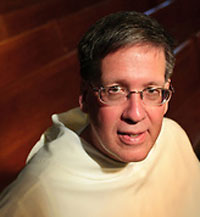 Episode 3 St. Catherine of Siena:  Her Life and Teachings with Fr. Thomas McDermott-
Episode 3 St. Catherine of Siena:  Her Life and Teachings with Fr. Thomas McDermott-
[powerpress]
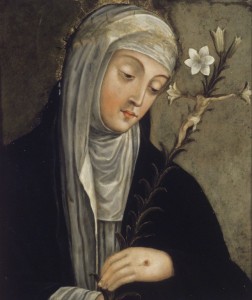 In this episode, Fr. McDermott discusses the experience of St. Catherine’s “Mystical Espousal” and it’s spiritual relevance.
In this episode, Fr. McDermott discusses the experience of St. Catherine’s “Mystical Espousal” and it’s spiritual relevance.
 The virtues are discussed as central to St. Catherine’s teachings and the importance of properly understanding their value in our lives.  The response to the needs of one’s neighbor is emphasized.  In particular, the special interaction with Andrea, the woman with cancer, is presented as an extraordinary moment of grace which aided in St. Catherine’s spiritual maturity and growth in holiness.  Fr. McDermott addresses the contemporary “controversy” over the actions taken in this particular experience.Â
The other experiences of the summer 1380, the exchange of hearts the mystical death are discussed, as well as, the saint’s invisible stigmata.
Fr. Thomas McDermott, OP is Regent of Studies for the Dominican Province of St. Albert the Great and is the author of “Catherine of Siena: Spiritual Development in Her Life and Teaching” (Paulist, 2008) and  “Filled with all the Fullness of God: An Introduction to Catholic Spirituality”.  He obtained a doctorate in spiritual theology from the Angelicum and taught for several years at Kenrick-Glennon Seminary in St. Louis.  He crrently serves as pastor at St. Vincent Ferrer, in Chicago, IL.
Our series is based on “Catherine of Siena”
by Fr. McDermott
Tags: catherine of siena, st catherine of siena, Thomas McDermott
This entry was posted on Wednesday, February 5th, 2014 at 11:59 am
You can follow any responses to this entry through the RSS 2.0 feed.
Dr. Matthew Bunson discusses the life, times and teachings of St. Gregory the Great
Today I would like to present the figure of one of the greatest Fathers in the history of the Church, one of four Doctors of the West, Pope St Gregory, who was Bishop of Rome from 590 to 604, and who earned the traditional title of Magnus/the Great. Gregory was truly a great Pope and a great Doctor of the Church! He was born in Rome about 540 into a rich patrician family of the gens Anicia, who were distinguished not only for their noble blood but also for their adherence to the Christian faith and for their service to the Apostolic See. Two Popes came from this family: Felix III
(483-492), the great-great grandfather of Gregory, and Agapetus (535-536). The house in which Gregory grew up stood on the Clivus Scauri, surrounded by majestic buildings that attested to the greatness of ancient Rome and the spiritual strength of Christianity. The example of his parents Gordian and Sylvia, both venerated as Saints, and those of his father’s sisters, Aemiliana and Tharsilla, who lived in their own home as consecrated virgins following a path of prayer and self-denial, inspired lofty Christian sentiments in him.
In the footsteps of his father, Gregory entered early into an administrative career which reached its climax in 572 when he became Prefect of the city. This office, complicated by the sorry times, allowed him to apply himself on a vast range to every type of administrative problem, drawing light for future duties from them. In particular, he retained a deep sense of order and discipline: having become Pope, he advised Bishops to take as a model for the management of ecclesial affairs the diligence and respect for the law like civil functionaries . Yet this life could not have satisfied him since shortly after, he decided to leave every civil assignment in order to withdraw to his home to begin the monastic life, transforming his family home into the monastery of St Andrew on the Coelian Hill. This period of monastic life, the life of permanent dialogue with the Lord in listening to his word, constituted a perennial nostalgia which he referred to ever anew and ever more in his homilies. In the midst of the pressure of pastoral worries, he often recalled it in his writings as a happy time of recollection in God, dedication to prayer and peaceful immersion in study. Thus, he could acquire that deep understanding of Sacred Scripture and of the Fathers of the Church that later served him in his work.
But the cloistered withdrawal of Gregory did not last long. The precious experience that he gained in civil administration during a period marked by serious problems, the relationships he had had in this post with the Byzantines and the universal respect that he acquired induced Pope Pelagius to appoint him deacon and to send him to Constantinople as his “apocrisarius” – today one would say “Apostolic Nuncio” in order to help overcome the last traces of the Monophysite controversy and above all to obtain the Emperor’s support in the effort to check the Lombard invaders. The stay at Constantinople, where he resumed monastic life with a group of monks, was very important for Gregory, since it permitted him to acquire direct experience of the Byzantine world, as well as to approach the problem of the Lombards, who would later put his ability and energy to the test during the years of his Pontificate. After some years he was recalled to Rome by the Pope, who appointed him his secretary. They were difficult years: the continual rain, flooding due to overflowing rivers, the famine that afflicted many regions of Italy as well as Rome. Finally, even the plague broke out, which claimed numerous victims, among whom was also Pope Pelagius II. The clergy, people and senate were unanimous in choosing Gregory as his successor to the See of Peter. He tried to resist, even attempting to flee, but to no avail: finally, he had to yield. The year was 590.
For more visit Vatican.va
Dr. Matthew Bunson, Senior Fellow of the St. Paul Center for Biblical Theology, is one of the United States’ leading authorities on the papacy and the Church.
His books include: The Encyclopedia of Catholic History; The Encyclopedia of Saints; Papal Wisdom; All Shall Be Well; Encyclopedia of the Roman Empire; and The Angelic Doctor: The Life and World of St. Thomas Aquinas; The Pope Encyclopedia; We Have a Pope! Benedict XVI, the first Catholic biography of the Holy Father in the English language; the Encyclopedia of U.S. Catholic History; Pope Francis. His also the editor of OSV’s “The Catholic Answer” magazine.
Tags: matthew bunson, pope benedict xvi
This entry was posted on Wednesday, February 5th, 2014 at 5:18 am
You can follow any responses to this entry through the RSS 2.0 feed.
USCCA8- Episode 8-Â The Saving Death and Resurrection of Christ
[powerpress]
Archbishop Lucas offers insights on the US Catholic Catechism for Adults Chapter 8:
Because Christ’s suffering and death was the instruments of salvation, from what did he save us? Â We needed to be saved from sin and its damaging effects. Â God’s plan to save us involved having the Son of God enter into this world to be like us in all things except sin. Â Divine love made this possible.
The Most Reverend George J. Lucas leads the Archdiocese of Omaha.Â
For other episodes in the visit our Archbishop George Lucas page
This programs is based on:
More information can be found here.
We wish to thank the USCCB for the permissions granted for use of  relevant material used in this series.
Also we wish to thank Omar and Miriam Gutierrez for their vocal talents in this episode.
Tags: Catholic Catechism, George Lucas, Saving Death and Resurrection of Christ
This entry was posted on Tuesday, February 4th, 2014 at 12:07 pm
You can follow any responses to this entry through the RSS 2.0 feed.



